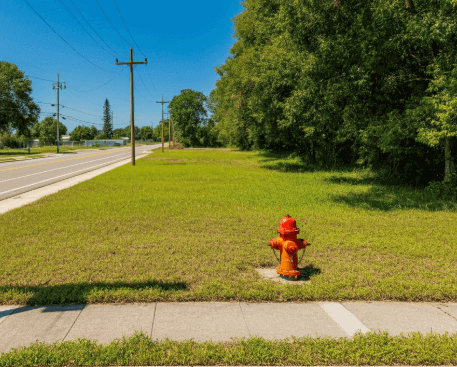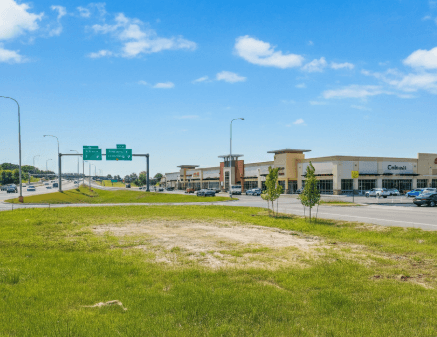Improved land is a vital concept in real estate, describing upgraded property with features like utilities, roads, or buildings to improve its value and usability. For example, water lines or landscaping developments can transform a parcel of land into a highly attractive investment. But what is improved land, and why does it matter? Did you know that improved land is typically more expensive but comes with reduced risks due to its development-ready state? Understanding “What is improved land?” is crucial for real estate investors aiming to make smarter, more profitable decisions. Renowned land buyers for cash, Steve Daria and Joleigh, are experts in pinpointing high-value land opportunities that align with your investment goals. With their insights, you’ll gain the knowledge needed to identify prime properties with outstanding potential. Don’t wait to grow your portfolio – book a free discussion with Steve Daria and Joleigh today and take the first step toward more lucrative investments!
What is improved land?
Improved land refers to property that has been enhanced in some way to make it more usable, valuable, or suitable for a specific purpose.
For example, adding essential features like water lines, electricity, roads, or buildings transforms the land from its natural state into something ready for development or immediate use.
But what is improved land exactly? It’s land that goes beyond being raw or vacant, as it has infrastructure or improvements that make it more appealing to buyers, investors, and developers.

Depending on its intended purpose, this may encompass residential, agricultural, or commercial features.
Improved land is often considered more convenient and profitable since developing further requires less time and effort.
Its value is also higher than unimproved land because it is closer to being ready for occupancy or productivity.
Many investors consider this type of property a safer choice because the upgrades have already been made, reducing risks such as construction delays or high development costs.
Understanding what improved land is is important for making informed decisions in real estate, whether you’re investing, buying, or planning future developments.
Get Started: Get Your Cash Offer Below…
We are direct land buyers. There are no commissions or fees and no obligation whatsoever. Start below by sharing where your property is and where we can send your offer…
Why is improved land important in real estate?
Improved land is important in real estate because it has amenities or infrastructure that make it more functional and valuable.
Features like electricity, water systems, roads, or buildings save buyers and developers the time and expense of adding these themselves.
This makes improved land a popular choice for those who want to build or use the property right away.
Additionally, it often attracts higher demand since the foundational work is already done, which can lead to faster sales or leases.
When considering options, many investors prefer improved land because it reduces uncertainties associated with raw land, such as zoning or construction hurdles.
Improved land supports community growth by offering spaces for homes, businesses, or public facilities.
Its value tends to increase over time as development in the surrounding area grows.
Understanding “What is improved land?” helps buyers make smarter decisions about pursuing properties that align with their goals and timelines in real estate.
What factors affect the cost of improved land?
- Location: The location of the land heavily affects its cost, with properties in cities or busy areas usually being more expensive than those in rural locations. Proximity to schools, businesses, and transportation can also raise the value of improved land.
- Type and Quality of Improvements: Enhancements made to the land, such as paved roads, utility lines, or buildings, will impact the price. High-quality or extensive upgrades often increase the land’s market value compared to more basic improvements.
- Zoning and Permits: Zoning laws, which dictate how the land can be used (residential, commercial, etc.), can also influence its cost. Properties that allow for multiple uses or have flexible zoning are more valuable.
- Market Demand: If there is high demand for land in a particular area, the cost of improved land will typically rise. Popular areas with limited available properties often drive up prices because of competition among buyers.
- Surrounding Infrastructure: Land closer to important infrastructure, like highways, hospitals, and shopping centers, usually comes with a higher price tag. These amenities make the land more desirable and accessible, which boosts its value.

Can unimproved land be turned into improved land?
Unimproved land can definitely be turned into improved land by adding features that make it more useful and valuable.
For example, installing water and sewer systems, electricity, or building roads are common ways to improve land.
The process typically starts with planning and obtaining necessary permits to ensure that the upgrades meet local regulations.
Converting unimproved land takes time, money, and resources, but it can also significantly increase the property’s market value.
Many developers turn raw, unimproved land into developed plots for housing, businesses, or community projects.
An important step is evaluating the property’s potential and understanding the costs of the upgrades.
Knowing “What is improved land?” can help you see how changes like these transform a basic piece of property into something functional and ready for specific uses.
Overall, turning unimproved land into improved land is a smart investment for those who want to unlock its full potential.
How do I evaluate the value of improved land?
- Location and Accessibility: The location of the land is one of the biggest factors determining its value. Improved land in areas close to schools, businesses, and major roads is generally worth more because it’s accessible and convenient. This helps understand “What is improved land?” regarding added usability.
- Type of Improvements: The kind of upgrades on the land, like electricity, water connections, or paved roads, directly affect its value. Higher-quality or more extensive improvements make the land more functional and desirable, leading to a greater market value.
- Zoning and Land Use: Zoning regulations influence how the land can be used, whether for residential, commercial, or industrial purposes. Land with flexible zoning options is typically more valuable since it appeals to a wider range of buyers and investors.
- Comparable Sales: Researching recent sales of similar properties in the area can give you an idea of the land’s value. Comparing these properties helps you better evaluate “What is improved land?” and how much its specific features are worth in the current market.
- Future Potential: Evaluate the area’s growth potential and take note of any upcoming developments nearby, such as new businesses or schools, that could enhance its appeal. Land in areas with strong growth prospects often increases in value over time, making it a valuable long-term investment.
What steps should I take before purchasing improved land?
Before purchasing improved land, it’s important to take several steps to make a smart investment.
Start by researching the property thoroughly, including its zoning regulations and permissible uses, to ensure it matches your plans.
Next, evaluate the type and quality of improvements already made, such as utility connections, paved roads, or drainage systems, as these directly impact the land’s value.
Understanding “What is improved land?” is crucial in identifying these features and how they add convenience and functionality.
It’s also essential to review the seller’s property title to confirm there are no legal issues like liens or disputes.
Hiring a professional land surveyor can help verify property boundaries and avoid future conflicts.
Additionally, compare the land with other nearby improved properties to ensure the asking price is fair.
For guidance, consider consulting with seasoned real estate investors like Steve Daria and Joleigh, who specialize in buying land for cash and understand the entire process.
Finally, partner with an experienced local real estate agent or attorney to ensure your purchase is smooth and secure.
If you’re ready to start, seek expert advice to help you make the most informed decision!
Takeaway
- What is Improved Land? Improved land refers to land plots with enhancements like buildings, utility connections, or roads added to them. These improvements make the land more functional and valuable than raw, unimproved land.
- Types of Improvements: Common improvements include infrastructure like water, electricity, and sewer systems, as well as physical structures like homes or commercial buildings. These additions increase the land’s usability and market value.
- Role of Improved Land in Real Estate: Improved land is often a better investment because it’s already developed, making it easier for buyers to use immediately. It’s commonly sought after for residential, commercial, and industrial purposes.
- Factors Affecting Value: The value of improved land depends on its location, types of improvements, and zoning rules. Being close to roads, schools, and businesses is an important factor in determining value.
- Benefits of Knowing About Improved Land: Understanding improved land and how it differs from unimproved land helps buyers make better decisions. It also allows investors and developers to evaluate whether a property meets their needs and offers good growth potential.
**NOTICE: Please note that the content presented in this post is intended solely for informational and educational purposes. It should not be construed as legal or financial advice or relied upon as a replacement for consultation with a qualified attorney or CPA. For specific guidance on legal or financial matters, readers are encouraged to seek professional assistance from an attorney, CPA, or other appropriate professional regarding the subject matter.
